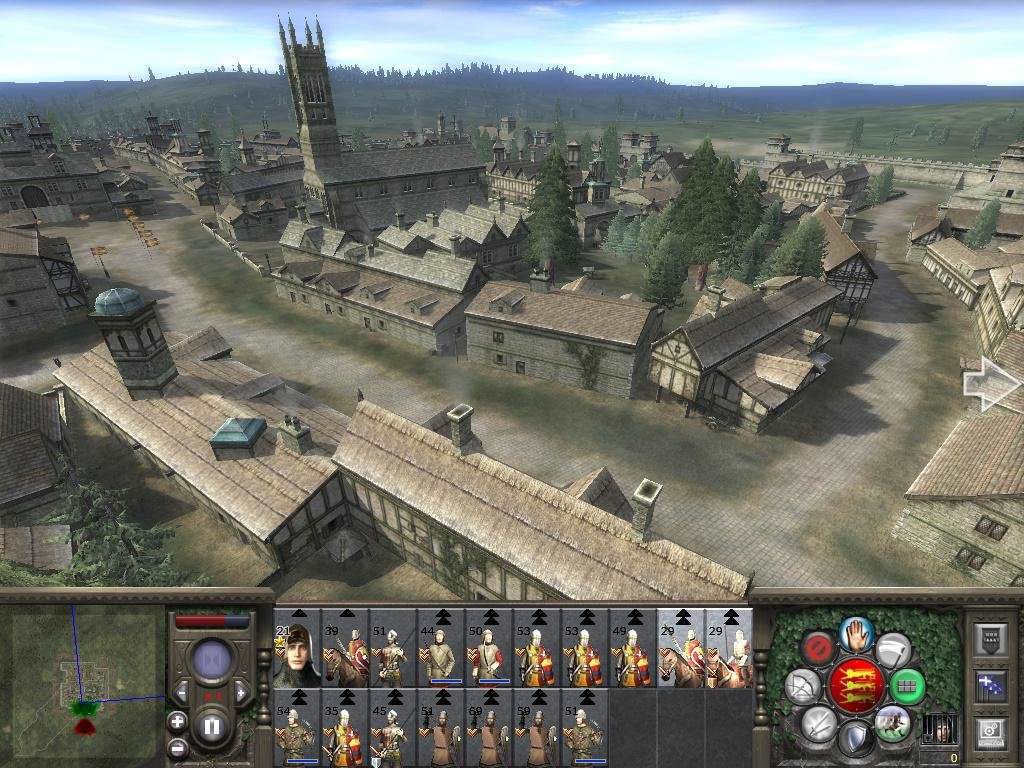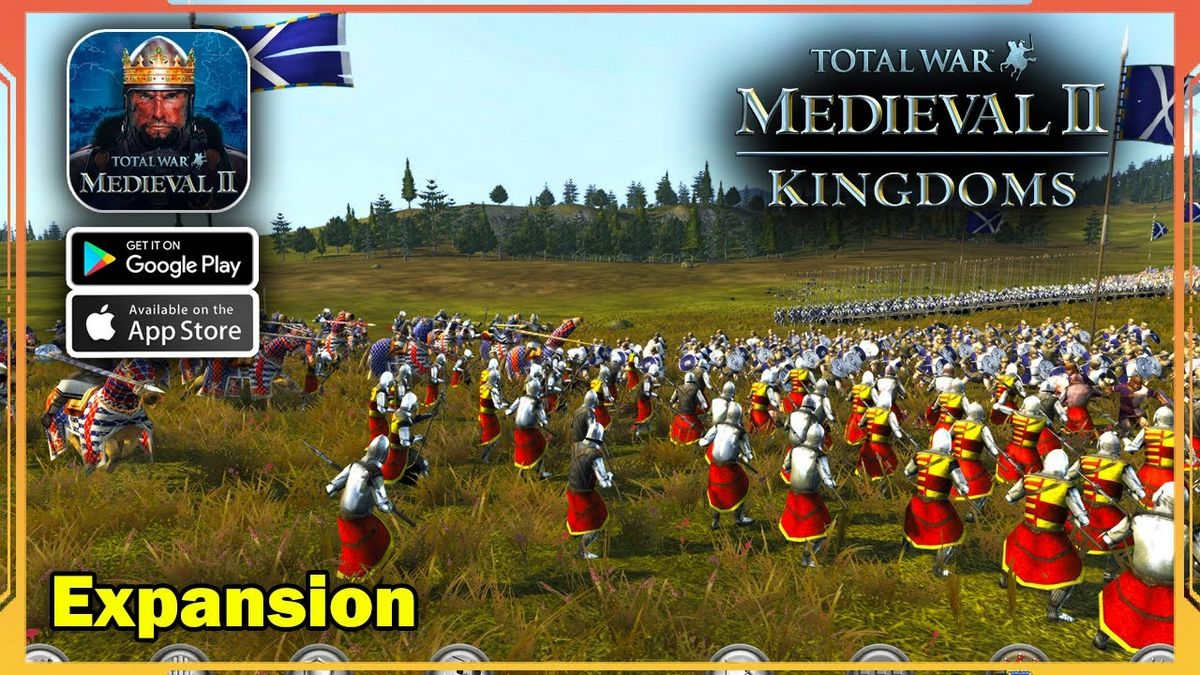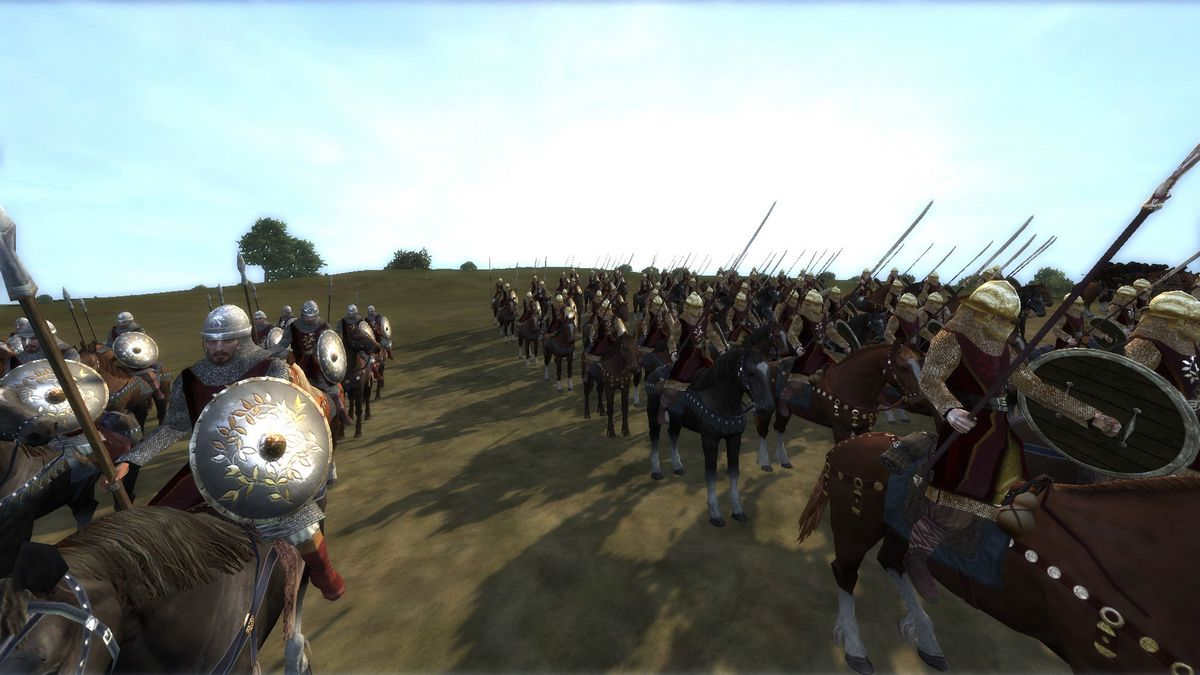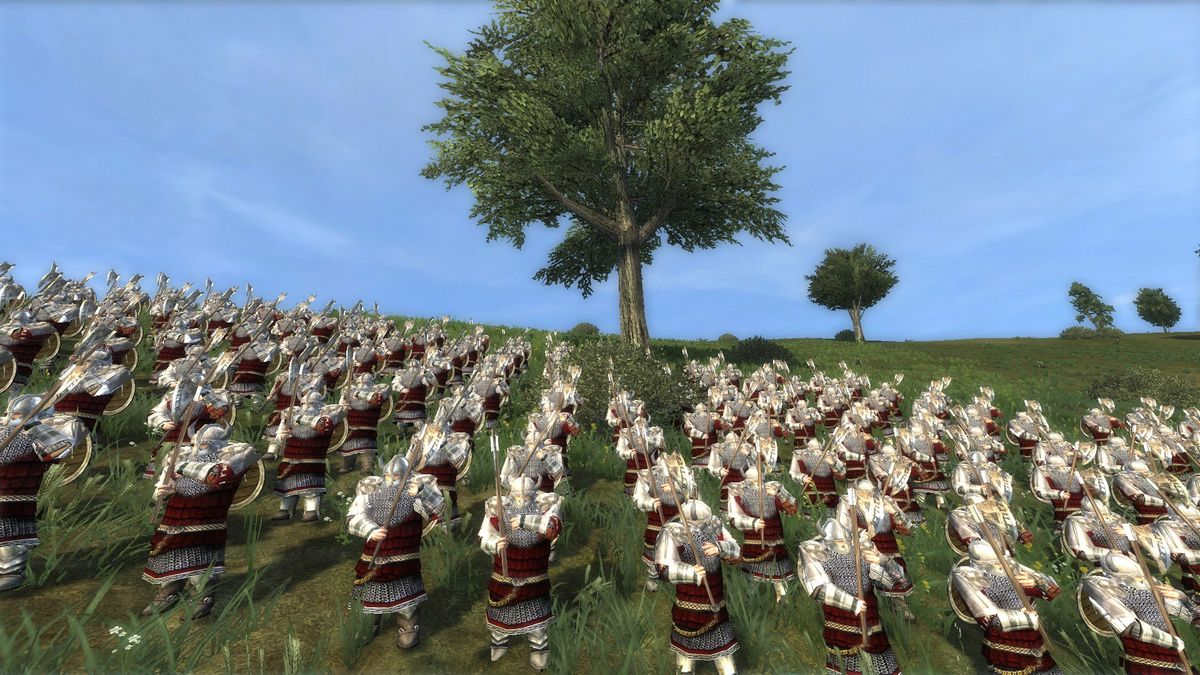Medieval II: Total War Kingdoms is an iconic real-time strategy game developed by Creative Assembly and published by Sega. It is a standalone expansion of the original Medieval II: Total War game, which was released in 2006. Set in medieval Europe, this game allows players to take control of various factions as they engage in epic battles for territorial dominance.
This expansion introduces four new campaigns that showcase different regions and cultures around the world – Crusades, Teutonic, Britannia, and Americas. Each campaign has its unique challenges and objectives that require strategic planning and tactical prowess to achieve victory.
The gameplay mechanics of Medieval II: Total War Kingdoms are complex yet intuitive, providing players with a challenging but rewarding experience. From managing resources to building armies and engaging in diplomacy or espionage activities – every aspect of this game requires careful consideration to succeed.
Furthermore, the graphics and sound design of this game are exceptional, immersing players into a world filled with rich historical details such as realistic battlefields and authentic music scores from different cultures.
Overall, Medieval II: Total War Kingdoms remains a beloved classic among strategy gamers worldwide due to its compelling gameplay mechanics, stunning visuals & audio design elements while offering unparalleled attention to detail when it comes down to accurately representing historical events through their narrative-driven campaigns.
- The Evolution of the Total War Franchise: A Look at Medieval II: Total War Kingdoms
- Strategies for Conquest: Mastering Medieval II’s Four Campaigns
- Faction and Unit Diversity in Medieval II: Total War Kingdoms
- The Role of Religion in Gameplay Mechanics and Strategy
- Mods, Customization, and Community-made Content in Medieval II: Total War Kingdoms
The Evolution of the Total War Franchise: A Look at Medieval II: Total War Kingdoms
One of the standout titles in this series is Medieval II: Total War Kingdoms, which took the franchise’s already impressive tactical gameplay to new heights with a range of new factions, campaigns, and units.
Released as an expansion pack for Medieval II: Total War, Kingdoms breathed new life into the game thanks to its focus on more diverse factions such as Poland, Lithuania, Native Americans and others. Players could now take control of these lesser-known kingdoms while also enjoying enhanced campaign maps featuring more detailed environments. In addition to this, players were given access to several mini-campaigns including The Crusades Trail (a campaign spanning multiple conflicts), Britannia (focused on England), Teutonic Wars (based around Northern Europe) and Americas Campaign (focusing on colonization).
The expansion also added a number of new units and technologies that made battles even more strategic than before – players now had access to fortifications like flaming arrows or boiling oil that could be used tactically during engagements. Overall, Medieval II: Total War Kingdoms stands out as one of the most successful expansions ever released in gaming history by offering an incredible depth when it comes to both strategic gameplay mechanics alongside fresh content in regards faction options that celebrate diversity among their players base.
Strategies for Conquest: Mastering Medieval II’s Four Campaigns
To succeed in conquering the vast territories of medieval Europe, players must master a variety of different strategies.
One key strategy is to carefully manage resources. Players must balance their income against their expenses, investing in infrastructure and armies while avoiding bankruptcy. It is also important to effectively allocate resources among cities and regions within your empire, ensuring that each area is optimized for its particular strengths.
Another crucial element of success is effective diplomacy. Building alliances with other factions can provide valuable support on the battlefield or open up new opportunities for expansion, while managing relationships with rivals can prevent costly wars and ensure long-term stability.
Finally, mastering the art of warfare itself is essential. Players must develop a range of tactics for both offensive and defensive operations, including siege warfare, cavalry charges, archery formations, infantry tactics and more. They must also adapt to changing circumstances as enemy forces evolve over time.
In short, succeeding in Medieval II: Total War Kingdoms requires strategic thinking across multiple dimensions – from resource management to diplomacy to tactical combat abilities – all aimed at achieving one ultimate goal: domination over medieval Europe!
Faction and Unit Diversity in Medieval II: Total War Kingdoms
This game offers players the opportunity to command armies belonging to different factions that have distinct characteristics in terms of military units, political systems, economy, and culture. The five playable factions include England, Scotland, Wales, Ireland and Norway.

Each faction has its own strengths and weaknesses regarding their army composition. For instance, English longbowmen are considered some of the best archers in the game while Scottish Highlanders are known for their ferocity in close combat. Additionally, each faction has unique buildings they can construct which provides them with specific bonuses or discounts on certain troops or trade goods.
The addition of new units such as gunpowder artillery also changed how armies were structured in comparison to previous titles like Rome: Total War. Players must now consider factors such as terrain when deciding what type of army composition will be effective against rival factions leading to more challenging gameplay dynamics overall. In conclusion,factional differences offer players multiple strategies and play styles depending on personal preferences making Medieval II: Total War Kingdoms one of the most engaging strategy games available today..
The Role of Religion in Gameplay Mechanics and Strategy
The game allows players to control religious factions alongside secular ones, with each religion having its unique strengths and weaknesses. Religious affiliation can influence diplomatic relationships, trade agreements, and military alliances, making it an important aspect of the game.
The spread of religion also affects gameplay mechanics as players have the option to convert regions they conquer into their own faith or maintain the existing one for stability purposes. This decision impacts public order levels which affect productivity rates within that region; religions with low public orders struggle with civil unrest and frequent rebellions.
In terms of strategy, religion can be used to sway potential enemies towards peace by sharing similar beliefs or threaten opponents’ spiritual allegiances through targeted conversion campaigns. It’s also possible for players to address concerns regarding their citizens’ religious freedoms while maintaining political power through acts such as granting autonomy or decentralizing authority.
Furthermore, religious leaders can act as effective agents in espionage missions due to their wide-reaching influence across different territories. They can gather intelligence on rival armies’ movements or incite rebellion amongst enemy cities under opposing religious rule.

In conclusion, Religion is an essential element that contributes significantly to gameplay mechanics and strategic planning in Medieval II: Total War Kingdoms. By understanding how it functions within the game’s framework player will be able to use this information effectively throughout the course of play-ensuring long-term success against other factions while promoting balance between both secular forces and those influenced by faith alone.
Mods, Customization, and Community-made Content in Medieval II: Total War Kingdoms
One of the defining features of this game is the ability for players to create and customize their own content, whether it’s new maps, units, or gameplay mechanics. This level of freedom has allowed gamers to experiment with different playstyles and strategies, making Medieval II: Total War Kingdoms one of the most replayable games on the market.
At its core, modding allows players to take control over how they experience Medieval II: Total War Kingdoms. Customization ranges from cosmetic changes like custom skins and textures for units and buildings all the way up to creating entirely new campaigns with unique factions and storylines. Some mods even add entirely new gameplay mechanics such as diplomacy systems or advanced AI behavior.
Perhaps what makes Medieval II: Total War Kingdoms’ modding community so remarkable is how open it is; anyone can create a mod or contribute ideas for improvements through forums dedicated specifically to this purpose. This collaborative approach creates an environment where creativity flourishes and inspires others in turn – leading to increasingly complex mods that push boundaries beyond anything seen before in traditional gaming circles. In short, mods have created an entire subculture within this already captivating game world – one which thrives on imagination, creativity & innovation!

In conclusion, Medieval II: Total War Kingdoms stands as a testament to the enduring appeal of historical strategy games. With its focus on the political and military intricacies of medieval Europe, this game offers players a rich and immersive experience that is both challenging and rewarding.
Whether you are leading armies into battle, negotiating alliances with rival factions, or managing your economy in order to fund your war efforts, Kingdoms demands careful planning and strategic thinking from beginning to end.

But what truly sets this game apart is its attention to detail. From the meticulously researched historical settings and units to the nuanced diplomatic interactions between factions, every aspect of Kingdoms feels authentic and compelling.
Ultimately, whether you are a seasoned fan of strategy games or simply looking for an engaging way to explore medieval history, Medieval II: Total War Kingdoms is an experience not to be missed. Its blend of depth, complexity, and authenticity make it one of the most satisfying games in its genre – a true masterpiece that will stand the test of time.
Read More:- Conquer the Seas and Rule the Land with Medieval: Total War – Viking Invasion Game!.
- Get Ready for the Ultimate Battle with Total Annihilation Game – Unleash Your Strategic Genius! (68 characters).
- Experience Epic Battles and Intriguing Romance in Game: Romance of the Three Kingdoms VIII (69 characters).
- Experience Epic Battles and Intrigue in Game Romance of the Three Kingdoms VII – Unleash Your Inner Strategist!.
- Experience Epic Battles and Conquer Ancient Worlds with Spartan: Total Warrior Game.
- Experience Life in Medieval Europe with Europa 1400: The Guild Game – Play Now!.
- Cossacks II: Battle for Europe – Conquer the Continent with This Epic Game.